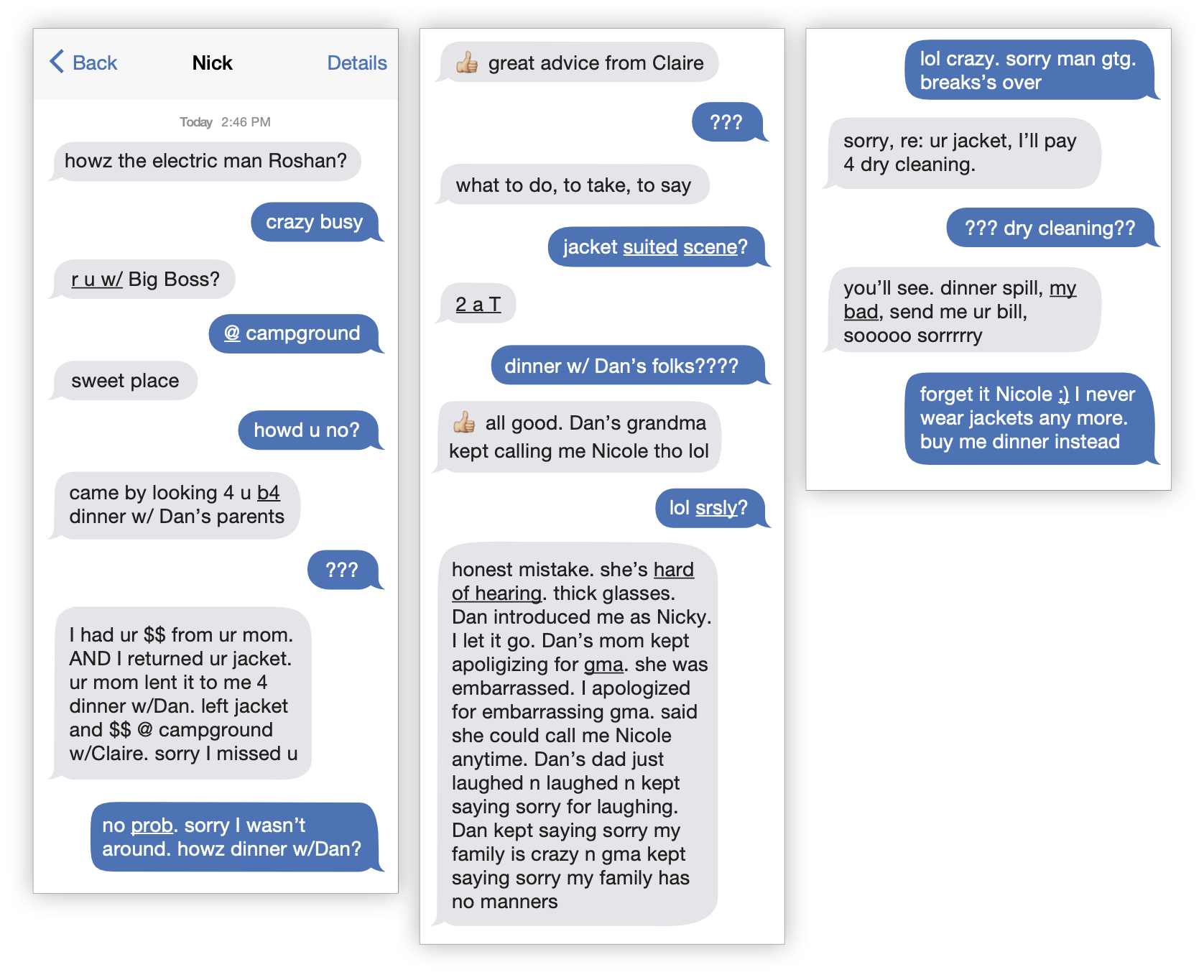4.2: Reading
- Page ID
- 91191
Before You Read
➔ Complete these pre-reading activities before you read informal and formal apologies.
Formality and Directness in Responding to an Apology 
In the chapter video, Ivan offers a detailed apology to Claire. Although he is familiar with Claire, Ivan wrote out what he wanted to say. The apology he reads sounds more formal than his normal speaking style. Written English is often more formal than spoken English. Ivan is very direct about how he feels about his mistakes. He doesn’t make up any excuses. He doesn’t expect Claire to excuse him.
Claire responds to the apology by giving Ivan a bear hug and saying, “I’m so sorry about your dog.”
Her body language shows her open and direct acceptance. The way she says “sorry” expresses her feelings of sympathy to Ivan’s own pain.
➔ Read these possible responses to an apology and answer the questions.
- Are they formal or informal?
- Are they direct or indirect about feelings?
- Does the speaker accept or reject an apology?
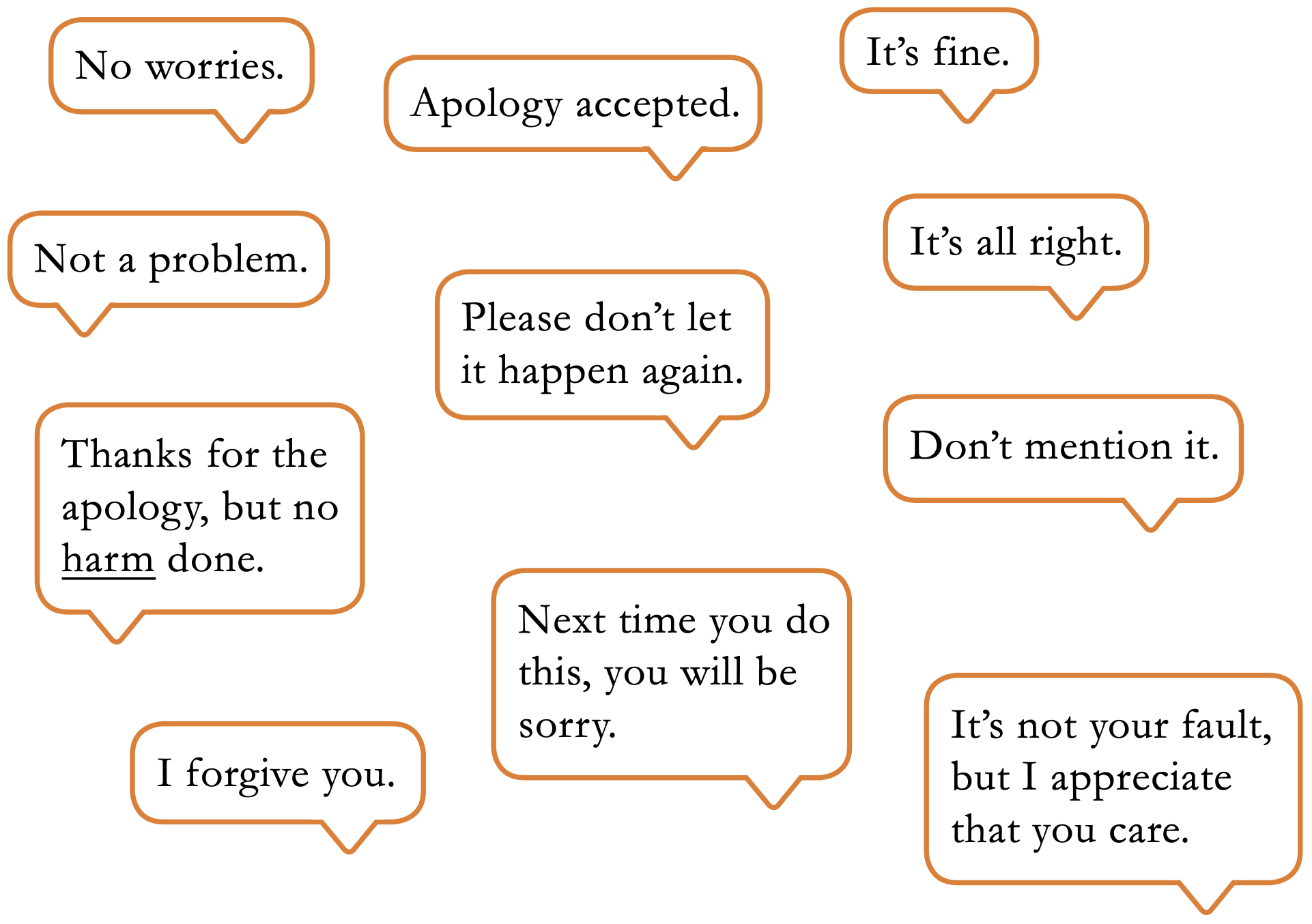
Vocabulary: Synonyms 
Many words have multiple meanings. Look at the table below. For each row, indicate which words on the right have the same meaning as the word on the left.
|
conflict |
dispute |
argument |
battle |
disagreement |
|---|---|---|---|---|
|
right |
correct |
justified |
appropriate |
obligated |
|
heartfelt |
honest |
sincere |
painful |
earnest |
Predictions
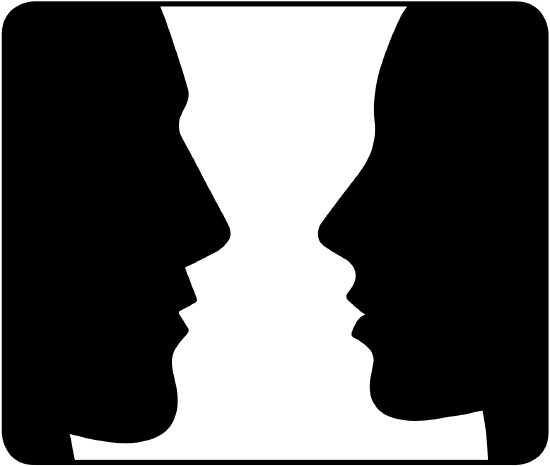
You’re going to read an email from Claire and a business letter from a lawyer. Both kinds of correspondence are serious. In both cases, a mistake was made; both writers acknowledge a problem. However, the writers do not have the same concern about “saving face” or “losing face.”
In other words, some apologies are open about taking responsibility for what went wrong. The purpose of such an apology is to make things right between the people in the relationship. Other apologies are about “face,” or respect. Guarding status, or reputation, and avoiding blame or shame can change ideas about who deserves an apology, when and where an apology is appropriate, and how the apology is offered.
Before reading, make the following predictions:
- How will familiarity or unfamiliarity between the writer and the reader affect an apology?
- How much formality do you expect in a serious apology between friends? Between strangers?
- How much openness, or directness, do you expect about
- responsibility?
- feelings?
- What words might be used to “save face”?
Reading 1
➔ Read this email from Claire to Gilles.
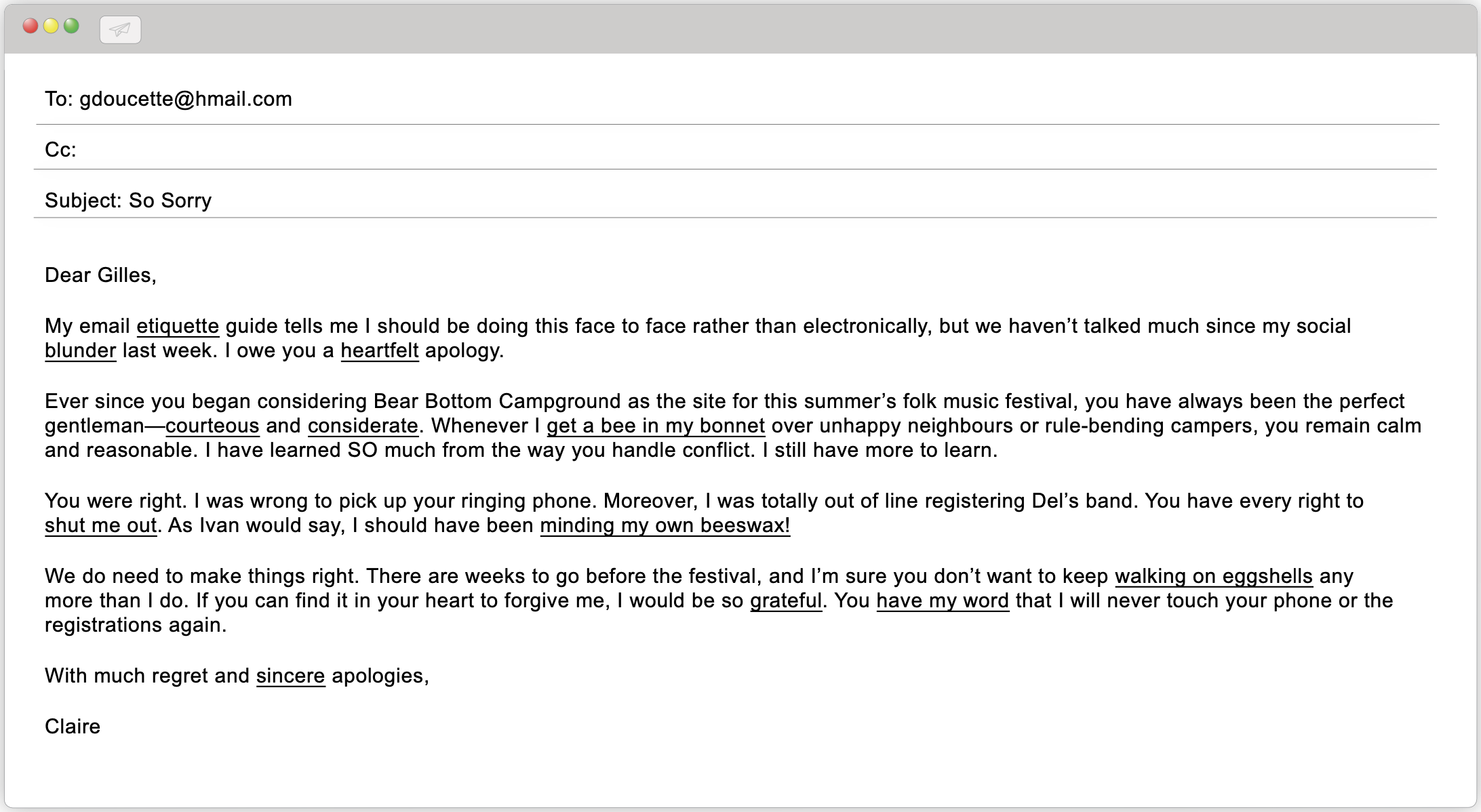
After You Read
Comprehension 
Strategy 1: Recognizing Meaning
➔ Choose the best answer.
- Claire is writing because
- she wants to meet Gilles face to face
- she wants to tell Gilles she is sorry
- her etiquette guide told her to apologize to Gilles
- Claire thinks that
- Gilles should apologize to her
- Gilles should not be angry with her
- it’s understandable that Gilles is angry with her
- Claire promises
- to forgive Gilles
- not to touch Gilles’ phone again
- to make things right with Gilles
- Claire wants Gilles to
- forgive her
- find his heart
- walk on eggshells
➔ Choose the best answer.
- Claire writes: “I was wrong to pick up your ringing phone.” She means
- she should not have answered Gilles’ phone
- she should not have touched or moved Gilles’ phone
- she should not have let Gilles’ phone continue to ring
- she should not have called Gilles at home
- Claire writes: “You have every right to shut me out.” She means
- Gilles should not let her in the office any more
- she should make sure to close and lock the office door regularly
- she understands why Gilles doesn’t want to talk to her right now
- Gilles should not lock the doors to the office until she gives permission
- Claire writes: “I should have been minding my own beeswax!” She means
- she should get some bees and make honey
- Ivan should keep his bees at home
- she should not have paid attention to the bees
- she should not have crossed the line into Gilles’ private business
- Claire writes: “You have my word ...” She means
- she promises
- she wants to talk
- Gilles needs to write back
- he doesn’t understand
Vocabulary 
Strategy: Reinforcement of Words and Definitions Through Use in Context
Look at the table and sentences below.
➔ Fill in each blank with the correct word from the table.
|
forgive |
right |
conflict |
considerate |
|
etiquette |
regret |
sincere |
blunder |
- It is a common __________________ to mispronounce names that we are unfamiliar with.
- When he apologized, Ivan showed ________________ for his unfriendly actions toward Claire.
- Ivan apologized to Claire because he wanted to make things _________________ between them, so now they have a better relationship.
- Talking face to face about an emotional topic is better _______________ than emailing or texting about it.
- When Ivan waited outside the camp office while Claire and Gilles were speaking, he was being ___________________ of their privacy.
Reading 2
➔ Read this official letter to Gilles from someone he has never met or heard of before.
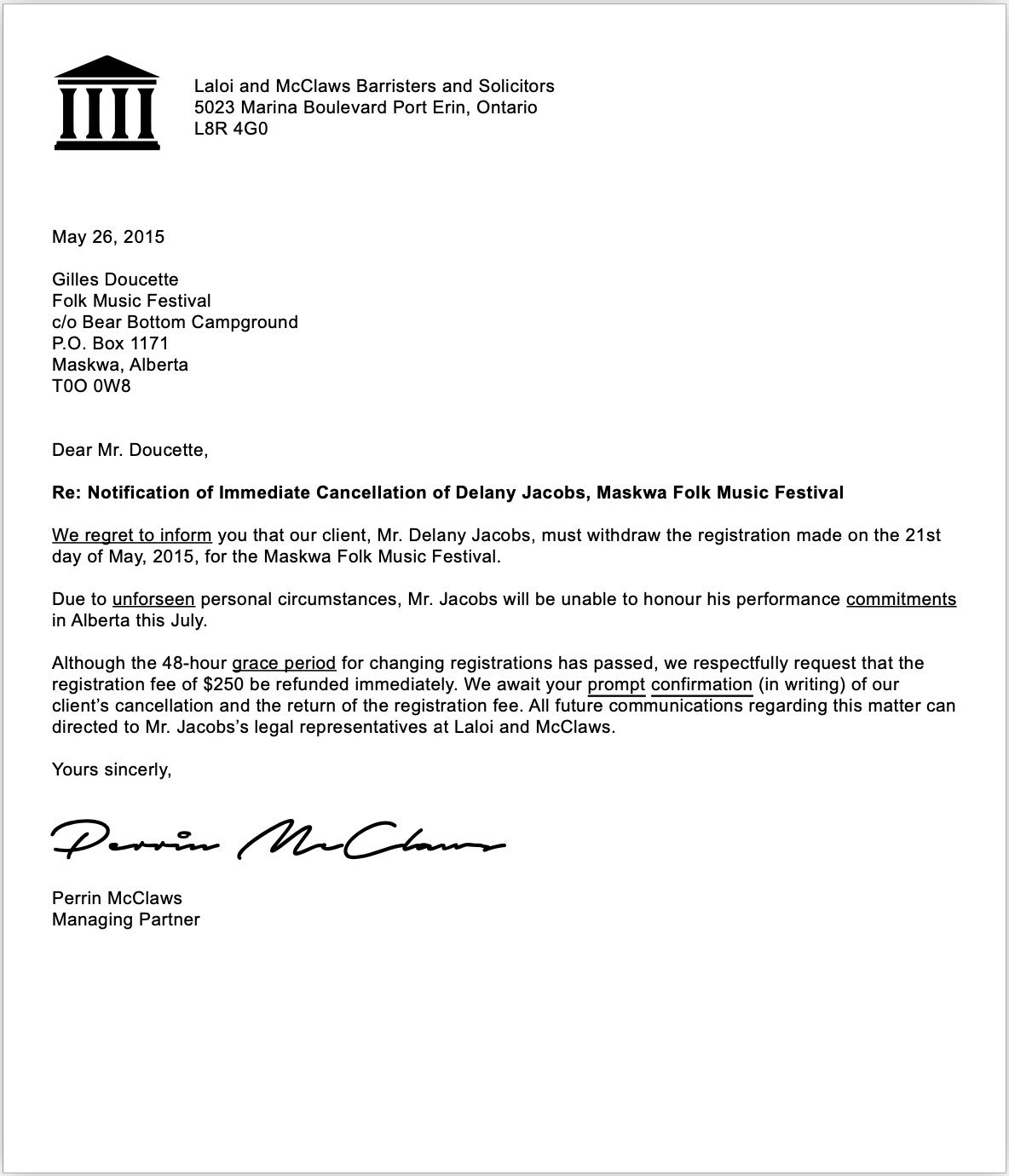
After You Read
Comprehension
Strategy 1: Locating Indirect Instructions 
In the letter from Perrin McClaws to Gilles Doucette, the lawyer gives Gilles five indirect instructions or commands. This is normal in legal communications.
➔ Match each indirect instruction on the left to its direct meaning(s) on the right. More than one direct instruction may match an indirect instruction.
|
Indirect Statements |
Direct Statements |
|
|---|---|---|
|
|
|
|
|
|
|
|
|
|
|
|
|
||
|
||
|
Strategy 2: Recognizing Phrases 
➔ Choose all the correct answers.
- “We regret to inform you” means
- Sorry to say
- Unfortunately
- You should be sorry
- You need to give us information
- “Due to unforeseen personal circumstances” may mean
- I expected this to happen
- I didn’t expect this to happen
- I’m having a personal problem
- I don’t want to tell you details of my personal problem
- “Unable to honour his performance commitments” means
- he will do what he promised
- he can’t do what he promised
- he needs to cancel his performances
- he needs to commit to more performances
Vocabulary 
Strategy: Using Context to Determine the Meaning of Expressions
- The word HONOUR has several meanings. In each sentence below, indicate the word or words that could be replaced by HONOUR.
- The lawyer’s letter politely tells Gilles that Del isn’t going to keep his promise, or commitment, to perform.
- The festival wants to celebrate musicians who have a good reputation.
- I know Ivan; he’s a man of very high standing in our community.
- Dev thinks that people who try to do the right thing are people who have personal goodness.
- The word MATTER has several meanings. In each sentence below, indicate the word or words that could be replaced by MATTER.
- Oksana doesn’t want her husband to discuss their personal information with their friends.
- Claire wants to talk to Gilles on the subject of Del Jacobs’s registration.
- When Claire noticed that Nick was feeling anxious, she asked him what the problem was.
- How much do parents’ opinions count to young adults?
- The words REGRET or REGRETS have several meanings. In each sentence below, indicate the word or words that could be replaced by REGRET or REGRETS.
- Ivan felt shame when he realized that bears were chasing campers.
- Claire feels guilty for answering Gilles’ phone when it rang.
- Dev feels sorry about not talking to Roshan very much lately.
- Claire couldn’t go to the panel discussion, so she sent a message saying she was sorry she couldn’t go.
Discussion
The letter from Perrin McClaws, Delany Jacobs’s lawyer, has a very different tone from Claire’s email.
NOTICE formal words and expressions.
FIND examples of formal expressions that mean:
- We’re sorry.
- He can’t come.
- The reason is private.
- He isn’t going to keep his promise.
- It’s past the deadline.
- We’re asking.
- Let us know.
DISCUSS why legal documents use formal, not informal, language.
- Consider why Del Jacobs did not tell Gilles directly that he was withdrawing from the festival.
- Why did he use a lawyer to send the message?
COMPARE the two written apologies.
IDENTIFY the number of times each writer
- took responsibility for a mistake using
- the word “apology”
- other words
- expressed feelings about the situation using
- the word “regret”
- other words
DISCUSS whether or not Claire, Perrin, or Del care about “saving face” or “losing face” with Gilles.
THINK about your own relationships outside English class.
TALK about apologies you have read. How familiar, formal, or direct was the writer?
TALK about how important “face” is in an apology. Is “saving face” part of mending fences?
Extension Activity
- Language Logs

Print another set of Language Observer Log and Language User Log pages to help you to pay attention to and try out words and expressions from this chapter in your daily life.
- “Sorry” Tracker

When people in our communities say “sorry,” they may mean very different things. They may
- feel sympathy for someone else’s trouble
- have pity for themselves
- be excusing themselves for an offence they consider to be small or unimportant
- want peace in a relationship
- feel shame, embarrassment, or humiliation
- be accepting responsibility, or even guilt, for something that went wrong.
 Like a detective, while you are reading, keep an eye out for the word “sorry” or written apologies. For example, a newspaper or website might offer something like this:
Like a detective, while you are reading, keep an eye out for the word “sorry” or written apologies. For example, a newspaper or website might offer something like this:
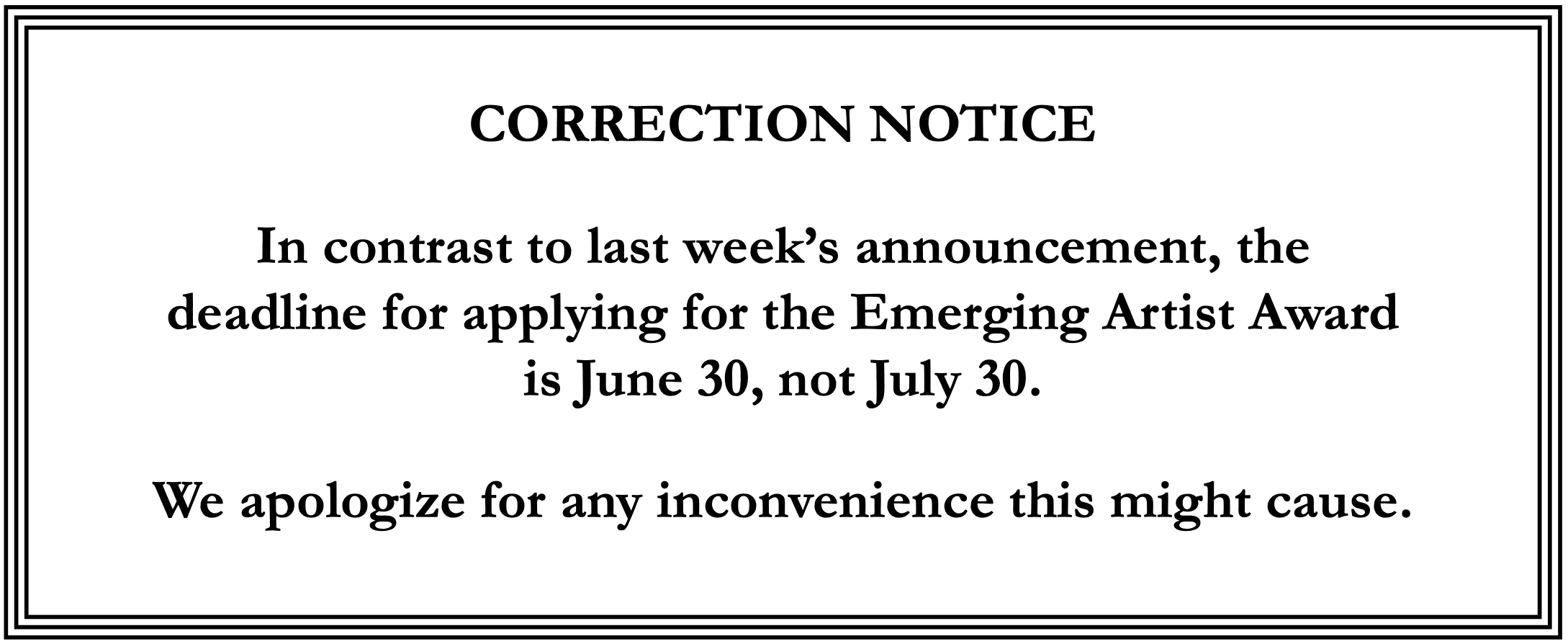
Keep your ears open for the word “sorry” in spoken apologies.
You may hear store clerks or service people say “sorry” to you or to someone else. Listen for “sorry,” “excuse me,” or “I beg your pardon” coming from the lips of strangers or very familiar people.
Two examples, or cases, have been recorded in the table below using the written apologies in this chapter.
|
“Sorry” Tracker |
||
|
The Facts |
Case 1 |
Case 2 |
|---|---|---|
|
Who said “sorry”? |
Claire |
A laywer, Perrin McClaws |
|
What happened? |
She answered Gilles’ phone and registered a band |
He was withdrawing Del Jacobs from the festival. |
|
When? |
A few days ago |
May 26, 2015 |
|
Where? |
At Bear Bottom Campground |
Ontario and Alberta |
|
Why? |
She wasn’t thinking about Gilles’ privacy. She thought she was helping. |
He didn’t say exactly, only “unforseen personal circumstances.” |
|
Your Opinions or Perceptions |
||
|
How was “sorry” received? Accepted? Rejected? |
Gilles did not accept right away. He told Claire she had crossed the line. He avoided talking to her about the problem. |
Gilles was probably REALLY happy. Claire was likely very happy, too. |
➔ Print a copy of this table to keep track of the way people in your community write or say “sorry.”
➔ Complete your form.
Be prepared to talk about the cases of “sorry” you find in your community.
Reading Progress Check 
Nick was recently in Maskwa. He missed seeing Roshan while he was there. Nick texts Roshan to catch up, share some information, and apologize for something.
➔ Read the questions and answers before reading this text.
This is a strategy to help you locate the answers more easily.
➔ After you read the exchange of texts, answer the questions.
- Choose the best answer. Why was Nick in Maskwa County?
- To meet Daniel’s parents
- To deliver money to Roshan
- To borrow Roshan’s jacket
- To visit with Claire and Roshan
- Choose all that are true. What does Nick apologize for?
- Not seeing Roshan at the campground
- Leaving the jacket at the campground
- Forgetting to give Roshan the money from his mother
- Getting food on Roshan’s jacket
- Choose all that are true. What does Roshan apologize for?
- Not seeing Nick at the campground
- Calling Nick “Nicole”
- Ending their text conversation
- Being busy
- Choose the best answer. What did Daniel’s mother apologizefor?
- Laughing
- Calling Nick “Nicole”
- Grandma calling Nick “Nicole”
- Having no manners
- Choose true or false for each statement.
- Nick feels that Daniel’s family owes him an apology.
True \(\ \quad\) False
- Grandma was worried that her family was being rude to Nick.
True \(\ \quad\) False
- Nick takes responsibility for getting the jacket dirty.
True \(\ \quad\) False
- Roshan asks Nick to pay to dry clean the jacket.
True \(\ \quad\) False
- Roshan wants Nick to apologize face to face for the jacket.
True \(\ \quad\) False
- Nick feels that Daniel’s family owes him an apology.
➔ Read these text messages.
